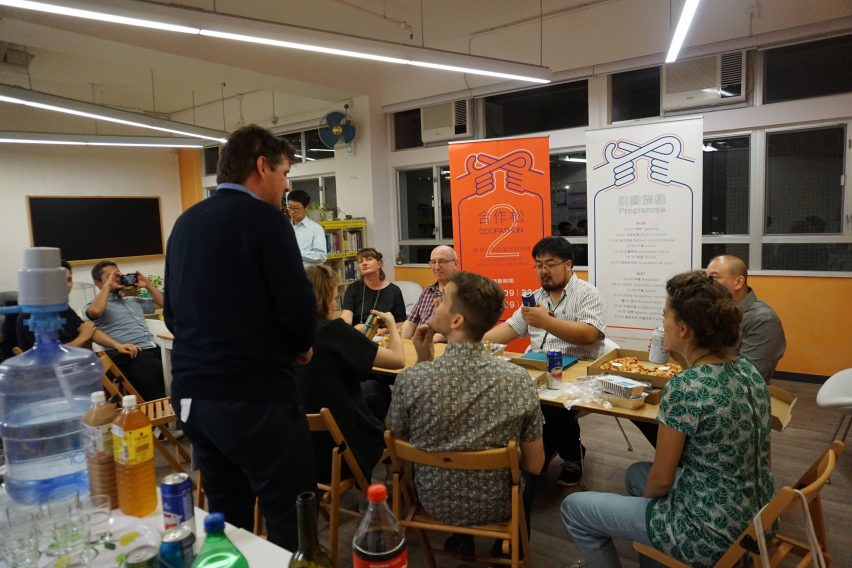Powerful platform companies are now claiming to be part of the collaborative economy: designed to capture, process and control increasingly large amounts of data in the hope of generating high levels of profit, they are now attracting much criticism.
"In addition to their technological functioning, observe Mélissa Boudes, Müge Ozman (Institut Mines-Télécom Business School) and Guillaume Compain (Université Paris Dauphine - PSL), " it is the whole socio-economic model of platforms that is being debated. Supposed to generate value for their users by organizing peer-to-peer transactions, some dominant platforms extract substantial rents from their position as intermediaries. Moreover, platforms are criticized for circumventing labor laws through the massive use of freelancers, for tax optimization, and for contributing to an increased commoditization of our daily lives.
From collaborative to cooperative
An alternative to platform companies is being sought around platform cooperativism, an international movement initiated in 2014 by Trebor Scholz. Its promoters make a radical proposal: put platforms in the hands of their own users." Phy do platform users delegate intermediation to third-party companies that capture the economic value of their exchanges when they could manage these platforms themselves? To do this, the solution would be to adopt the cooperative model. In other words, to create platforms owned by their users and applying a democratic functioning, where each co-owner has one vote, independently of his capital contributions. Moreover, the obligation to reinvest a share of the profits in the project and the impossibility of making a capital gain when the shares are resold make it possible to escape financial speculation.Numerous experiments are now taking place around the world. The Platform Cooperativism Consortium aims to give voice to this movement. It will convene its first conference on November 7-9, 2019 in New York: Who Owns the World? The State of Platform Cooperativism. In France, La Coop des Communs organized the Platform Cooperativism Forum on October 11th:
Guillaume Compain (Université Paris-Dauphine), Philippe Eynaud (IAE de Paris), Lionel Maurel (CNRS) and Corinne Vercher-Chaptal (Université Paris 13) have undertaken to study nine of these cooperative platforms that operate in France or Belgium.
- Oiseaux de passage: a platform for solidarity tourism
- Coop cycle: a bicycle delivery platform
- Rydigo : a carpooling service
- Mobicoop : a carpooling service
- Open food: a system of short food circuits
- 1dlab : a fair cultural streaming service
- Pwiic: a platform for exchanging services and objects between individuals
- France barter : a network of b2b exchanges
- Framasoft: an educational association for the defense and promotion of free software
These cooperatives also pay particular attention to the question of work. The Coopcycle bicycle delivery cooperative reintegrates this activity into the wage system with the associated social protections. 1DLAB has included in its charter the will to guarantee a decent income to the musicians and independent labels with whom they work. Concerning the evaluation, the Oiseaux de passage refuse the idea of a rating system for the hosts participating in the cooperative.
Three challenges for cooperative platforms
Their observations largely overlap with those of Mélissa Boudes, Müge Ozman (Institut Mines-Télécom Business School) and Guillaume Compain (Université Paris Dauphine - PSL). "There is no standard model for cooperative platforms, but rather a multitude of experiments that are still young, with very different structures and operating methods... While some were born in the wake of anti-buying mobilizations, like Coopcycle, others were imagined by digital entrepreneurs in search of meaning, or by social economy organizations (SSE) in the process of modernization.The three researchers point to three main challenges for cooperative platforms: "finding sustainable economic and financial models, federating communities and mobilizing support and partners.
Sustaining business models: "In a context of strong competition, alternative platforms have no right to make mistakes. In order to attract users, they must offer quality services, the key words being a comprehensive offer, efficient connection, ease of use and attractive design. However, it is difficult for cooperative platforms to attract investors because their profitability is, in most cases, limited by cooperative or associative statutes. Moreover, some of them opt for a logic of opening up their assets, for example by making their computer code freely available.On the other hand, if the creators of alternative digital platforms are entrepreneurs, their economic models are currently more about iteration than business plans. Many cooperative platforms, which are still emerging, are mostly based on volunteer work (made possible by external income: side jobs, personal savings, unemployment benefits, social minima) which risks being exhausted if the platform does not manage to generate income and/or attract new contributors.Gathering a community: "The importance of creating a committed community around the platform is therefore essential for both day-to-day operations and development, especially since the platform economy is based on network effects: the more people or organizations a platform brings together, the more it will attract new ones, as it will offer vast outlets to users. This makes it difficult for alternative platforms to break into sectors where there are already dominant players. Cooperative platforms are trying to differentiate themselves by building communities with a say in how the platform works (...) However, for now, user engagement remains low and project owners are often overworked." "Still very young", conclude Mélissa Boudes, Müge Ozman and Guillaume Compain, "the cooperative platforms are struggling to gather the support they sorely need. In terms of finance, their unstabilized models have difficulty convincing even public and SSE organizations, which prefer to turn to more solid and profitable commercial platforms. The other obstacle is political. In the battle against uberization, cooperative platforms are presenting themselves as alternatives, where, for the time being, public authorities seem to favor a social dialogue approach with the dominant platforms."
Photo credit: Platform Cooperativism Consortium
Références :





